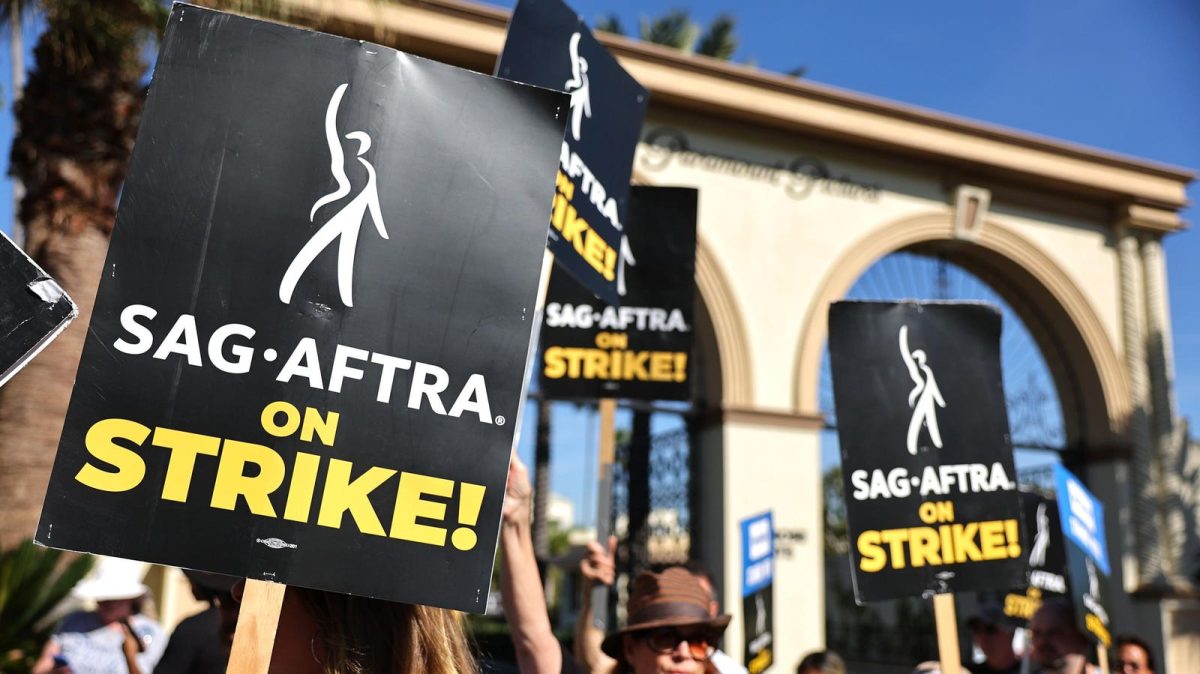Lights, camera and…action?

Photo via Forbes.
After six months of unpredictability in Hollywood, both the actor and writers’ strikes are finally over, which comes as a relief to the Canadian Film industry.
“We at the Film Commission are over the moon happy that the actors and producers have come to a fair and equitable agreement and our local crew can get back to work,” said Kathleen Gilbert, film commissioner of the Vancouver Island South Film & Media Commission (VISFMC). “Our phones are ringing again and [film production] packages are flying out to producers.”
On May 2, the Writer’s Guild of America (WGA) announced the strike after failing to reach a fair working deal for the workers union with the Alliance of Motion Picture and Television Producers (AMPTP). The reason for striking, with 97.85 per cent of union workers in favor of the motion, was the AMPTP rejection of the WGA proposal aiming for a reliable pay structure, a minimum increase of 6 per cent for residuals, and employment protections from artificial intelligence.
The summer-long writer’s strike ended on Sept. 27 for the WGA after it settled a new three-year deal with the AMPTP. As of October, production was still at a halt, waiting for the return of actors. Now the Screen Actors Guild-American Federation of Television and Radio Artists (SAG-AFTRA) has agreed on a new tentative deal, bringing the long awaited actors’ strike to an end.
The actors’ new three-year deal covers all different aspects of the job, including a basic wage increase for both film and television. Actors with a speaking role will get an automatic increase of seven per cent, with further increases for the next three years, while background actors will get a 11 per cent increase with the same yearly increases as well. For films and shows produced by streaming services, actors will get better residuals for hit shows.
This deal also includes protections related to AI use. Now actors will have to consent and be compensated if any digital replicas are created.
Although the SAG-AFTRA strike heavily slowed down the industry, production didn’t fully come to a halt for some actors in B.C.
“We’re a bit lucky in Vancouver,” said Omari Newton, an award-winning actor and the head of Vancouver Film School acting department, in an interview with the Martlet. Newton explained that B.C. actors are part of UBCP/ACTRA, Canada’s acting union, rather than SAG. This allowed some work to continue during the strike.“We still had a couple of productions going on that didn’t have SAG members … Mainly Hallmark stuff.”
While production didn’t fully stop, the effects were still felt heavily by workers across the film industry.
In B.C. alone, the film and TV industries employ almost 100 000 workers, with nearly 50 000 being full-time according to Creative BC. Most of these jobs are located in Metro Vancouver.
As a result, throughout the WGA and SAG-AFTRA strike, Canada’s film industry suffered, and Vancouver had a significant decrease in usual activity.
Darlene Tait, vice president of the VISFMC, explained how many people involved in the film industry had to rely on the generosity of family and friends to survive the summer without employment. Others whose entire lives revolved around their jobs in the film industry, weren’t as fortunate and may never return.
“I know a lot of people that were really worried about how they were going to pay their bills and whether they should pivot professions,” said Newton.
Those directly employed in the industry were not the only ones affected either. The strikes also impacted local businesses that had previously benefited from film productions.
“The film industry deals with such a broad range of suppliers,” Tait explained. “You’ve got crew eating at restaurants or catering, vehicle rentals, furniture sales for sets, clothing stores for wardrobes — it goes on and on. It’s a huge impact.”
Though the strikes have ended, regular production will not start up again until mid-January, after the holiday season is over. Even then, it’s still expected that it will take until spring of 2024 for production houses to fully normalize, according to Vancouver Film Commissioner Geoff Teoli.
Despite this, Newton is already seeing things pick up.
“Most of our grads … are getting a bunch of auditions,” explained Newton. “There was a bottleneck of stuff that was supposed to go but shut down during the strike, so it’s a good time.”
Even though these months have been rough and unpredictable, Newton hopes this doesn’t discourage anyone from pursuing a career in the arts.
“The desire to pursue a career in the creative industries always seems really daunting, because it’s not as linear or straightforward as being a lawyer or a doctor,” he says. “While it might seem scary with talks of strike and AI, there’s always going to be a demand for people that can tell stories.”






